On Friday, March 12, 2021 our Department hosted the fourth edition of CASTAD, the Canadian Spanish Teaching Assistants Dialogues. Given the current public health restrictions, the Dialogues were hosted remotely.
“I consider CASTAD a very important event for graduate students who teach Spanish as a foreign language (SFL) courses in Canada because it is a space that goes beyond theory and allows us to really share experiences, ideas, activities, and resources for our classes” – said Daniela Maldonado, a third-year PhD student in our department who is also a teaching assistant for our Spanish program. She added: “Also, as we are currently teaching online, having CASTAD this year was a wonderful opportunity to learn about what others are doing and share our visions, experiences, and reflections about virtual teaching and learning processes, which, in my case, help me to stay motivated.”
Since its first edition in 2017, the Canadian Spanish Teaching Assistants Dialogues (CASTAD) has been co-organized by the Department of Spanish & Portuguese at the University of Toronto and the Department of Languages and Cultures at the University of Western Ontario. More than a conference on language teaching, CASTAD has created a collegial space for graduate students working as teaching assistants in Spanish courses in Canadian universities to share their experience and learnings in the classroom.
Prof. Juan Carlos Rocha Osornio, our Spanish Language Coordinator and co-founder of CASTAD, explained the reason for such an event: “Spanish language courses in Canadian universities face particular challenges: from textbooks that lack culturally sensitive and geographically appropriate material for the Canadian context, to the scarcity of pedagogical literature from a North American perspective that incorporates the skills of multilingual students in a Spanish classroom. These issues are specially felt by teaching assistants, who in many cases are leading a classroom for the first time while adjusting to life in a new city or a new country even, completing their graduate studies, and working from a standardized syllabus with little wiggle room for creative detours.”
“The main objective of CASTAD – according to Prof. Ana García-Allén, Undergraduate Chair of Spanish at the University of Western Ontario and co-founder – is to create a space for teaching assistants in Canada to share their experiences, ideas, and projects to grow professionally.”
Daniela Maldonado agrees: “I have participated in CASTAD since 2018 and I love to hear every year how my colleagues have evolved and adapted their SFL teaching process. We are all changing and adapting in different ways as time passes and the fact of being able to listen to each other not only once during our graduate studies, but several times, allows us to value this process of evolution not only in ourselves, but also in our colleagues.”
According to attendees, this year’s event was a success. Presentations by teaching assistants were outstanding and engaged all participants. For the first time, CASTAD offered three awards to the best presentations. These awards were peer-chosen, voted by the audience present during the event.
One of the awards went to Daniela Maldonado for her presentation titled “De agua de panela a viajes virtuales: ¿Cómo mantener la motivación?” (From Sugarcane Drinks to Virtual Travels: How to Maintain Motivation?) Reflecting on what interactivity looks like in a virtual classroom, she shared specific activities to cultivate motivation, promote participation and be inclusive with the different ways of learning. As an example, she offered her experience teaching the prepositions "por" and "para” –a notoriously difficult topic for SFL students– through exposure to a traditional Colombian drink called "agua de panela con limón" (sugarcane lime drink). She included students’ reactions to this activity and how they themselves took an active part in their learning process.
Andrea Ángel, a third-year PhD student in the Department of Languages and Cultures at the University of Western Ontario, also received one of the awards. Her presentation, titled “Representaciones inclusivas y perspectiva de género en la clase de ELE” (Inclusive Representations and Gender Perspective in the SFL Class), reflected on her experience designing presentations for the first-year online Spanish course to complement the assigned book. Andrea shared observations on how to design a non-sexist and diverse educational project, to create pedagogical spaces that are more inclusive to students’ identities. Andrea also participated in the 2019 CASTAD and appreciates how the event opens a space “to think about how to improve our teaching skills, as well as share some effective experiences in the classroom. It is a unique occasion to build a collective knowledge of dynamic pedagogical practices.”
Another award was presented to her colleague at UWO, Arameh Khadjevand. She is a second-year PhD student and offered her thoughts on “El uso de cortometrajes en el aula de ELE” (The Use of Short Films in the SFL Classroom). During her presentation, Arameh shared methods for using short films to strengthen the learning of grammatical structures. As an example, she offered her experience teaching conditional sentences using the short film Extinguished. Arameh attended and participated in CASTAD for the first time this year. She said she “truly enjoyed all the presentations” and the “amicable conversation among all teaching assistants” sharing their experiences and concerns. In her words, this was “one of the most effective practical programs I’ve ever participated in.”
Prof. Rocha Osornio warmly invites all teaching assistants in Spanish courses in Canada to join us for CASTAD next year. This event not only will support the development of their own pedagogical practice, but it will contribute to a uniquely Canadian pedagogy of Spanish as a foreign language.


